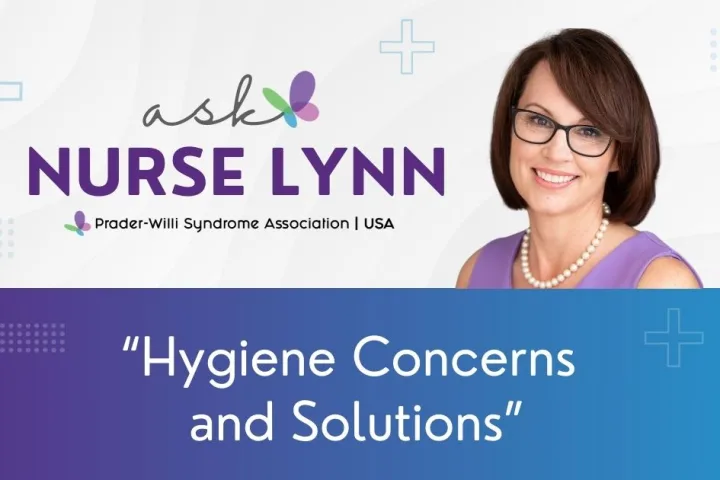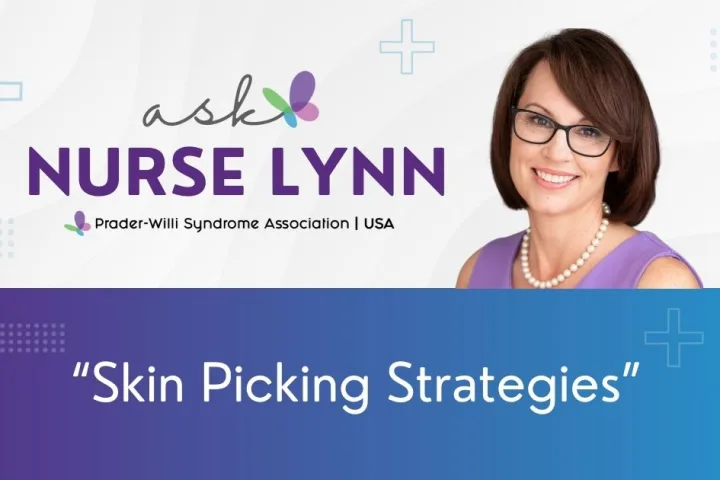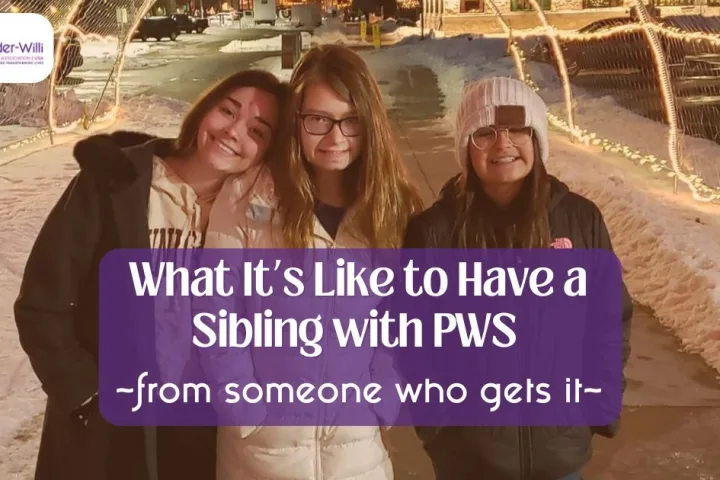Contributed by PWSA | USA Alterman Family Support Counselor, Kim Tula, MS, CSW
 Camelot Society is an adult residential provider in the State of Washington that serves individuals diagnosed with Prader-Willi Syndrome (PWS). They currently operate one Group Training Home (GTH) and eight Supported Living (SL) homes. Group training homes are community-based, residential facilities that typically serve 5-12 adults. The homes provide 24-hour instruction and support services. This includes services based on individual need and shared support within a household. The SL homes offer person-centered instruction and support to help adults live in their own homes with one to three other residents. Individuals pay their own rent, food, and other personal expenses. Services can vary from a few hours a month to up to 24 hours per day. The services include support for personal power, choice, and full access to the community. Both the GTH and the SL homes are certified through the state of Washington Department of Social and Health Services (DSHS).
Camelot Society is an adult residential provider in the State of Washington that serves individuals diagnosed with Prader-Willi Syndrome (PWS). They currently operate one Group Training Home (GTH) and eight Supported Living (SL) homes. Group training homes are community-based, residential facilities that typically serve 5-12 adults. The homes provide 24-hour instruction and support services. This includes services based on individual need and shared support within a household. The SL homes offer person-centered instruction and support to help adults live in their own homes with one to three other residents. Individuals pay their own rent, food, and other personal expenses. Services can vary from a few hours a month to up to 24 hours per day. The services include support for personal power, choice, and full access to the community. Both the GTH and the SL homes are certified through the state of Washington Department of Social and Health Services (DSHS).
Camelot Society receives state and federal funding for their programs. Funding for the programs at Camelot Society is provided through the Home and Community Based Services (HCBS) Core waiver. They currently do not accept private pay or have contracts to support individuals from out-of-state. An individual must be qualified to receive services from the Washington Developmental Disabilities Administration (DDA) in order to receive services from Camelot Society.
According to Karen Adams, Associate Director of Camelot Society, the Group Training Home can support up to seven individuals. The SL homes support anywhere from one to four individuals, depending on the needs of each person. The programs at Camelot only serve adults, but they hope to serve individuals throughout their life.
While the PWS programs at Camelot Society support a different number of individuals in each setting, they do staff the homes 24 hours a day with awake staff to ensure safety and prevent elopements. They also ensure food is kept secure to avoid temptation or increased anxiety. The staffing ratio depends on the needs of the individual and the time of day. There are generally more staff scheduled during the busier times of the day, or during times that individuals have activities going on. Karen also indicated the staffing ratio may vary if a house has higher behavioral needs.
When asked about supporting individuals with high behavioral needs, such as physical aggression, elopement, and theft, Karen told us they “absolutely” support these individuals. She stated, “We support individuals with high behavioral needs and try to meet them where they are at. We have been successful at assisting multiple individuals to reduce their intense behaviors and increase their quality of life. To help improve individuals quality of life and decrease maladaptive behaviors, Camelot Society staff implement Positive Behavior Support Plans (PBSP) for individuals with behaviors, as well as an Exception to Policy (ETP) when needed. We assist individuals in meeting with counselors as needed and encourage proactive strategies to coping with behaviors to decrease occurrences."
Currently, Camelot Society doesn’t have any non-conventional group homes for PWS, but they do have two SL sites that are in a condo setting. When asked where she sees the future of PWS-specific group homes and support, Karen said, “As an agency, we see PWS-specific residential services continuing to evolve. With more people affected by PWS living in the community independently, with supports from agencies like ours."
For more information regarding PWS supported living at Camelot Society, please contact Karen Adams, Associate Director at karena@camelotsociety.org or (425) 771-2108.
Website: http://camelotsociety.org/history
--------------------------------------------------------------------------------------------------------
This spotlight on Camelot Society is the fourth spotlight in PWSA | USA's residential series.
Share this!





 Jennifer Bolander has been serving as a Special Education Specialist for PWSA (USA) since October of 2015. She is a graduate of John Carroll University and lives in Ohio with her husband Brad and daughters Kate (17), and Sophia (13) who was born with PWS.
Jennifer Bolander has been serving as a Special Education Specialist for PWSA (USA) since October of 2015. She is a graduate of John Carroll University and lives in Ohio with her husband Brad and daughters Kate (17), and Sophia (13) who was born with PWS. Perry A. Zirkel has written more than 1,500 publications on various aspects of school law, with an emphasis on legal issues in special education. He writes a regular column for NAESP’s Principal magazine and NASP’s Communiqué newsletter, and he did so previously for Phi Delta Kappan and Teaching Exceptional Children.
Perry A. Zirkel has written more than 1,500 publications on various aspects of school law, with an emphasis on legal issues in special education. He writes a regular column for NAESP’s Principal magazine and NASP’s Communiqué newsletter, and he did so previously for Phi Delta Kappan and Teaching Exceptional Children. Evan has worked with the Prader-Willi Syndrome Association (USA) since 2007 primarily as a Crisis Intervention and Family Support Counselor. Evans works with parents and schools to foster strong collaborative relationships and appropriate educational environments for students with PWS.
Evan has worked with the Prader-Willi Syndrome Association (USA) since 2007 primarily as a Crisis Intervention and Family Support Counselor. Evans works with parents and schools to foster strong collaborative relationships and appropriate educational environments for students with PWS. Dr. Amy McTighe is the PWS Program Manager and Inpatient Teacher at the Center for Prader-Willi Syndrome at the Children’s Institute of Pittsburgh. She graduated from Duquesne University receiving her Bachelor’s and Master’s degree in Education with a focus on elementary education, special education, and language arts.
Dr. Amy McTighe is the PWS Program Manager and Inpatient Teacher at the Center for Prader-Willi Syndrome at the Children’s Institute of Pittsburgh. She graduated from Duquesne University receiving her Bachelor’s and Master’s degree in Education with a focus on elementary education, special education, and language arts. Staci Zimmerman works for Prader-Willi Syndrome Association of Colorado as an Individualized Education Program (IEP) consultant. Staci collaborates with the PWS multi-disciplinary clinic at the Children’s Hospital in Denver supporting families and school districts around the United States with their child’s Individual Educational Plan.
Staci Zimmerman works for Prader-Willi Syndrome Association of Colorado as an Individualized Education Program (IEP) consultant. Staci collaborates with the PWS multi-disciplinary clinic at the Children’s Hospital in Denver supporting families and school districts around the United States with their child’s Individual Educational Plan. Founded in 2001, SDLC is a non-profit legal services organization dedicated to protecting and advancing the legal rights of people with disabilities throughout the South. It partners with the Southern Poverty Law Center, Protection and Advocacy (P&A) programs, Legal Services Corporations (LSC) and disability organizations on major, systemic disability rights issues involving the Individuals with Disabilities Education Act (IDEA), Americans with Disabilities Act (ADA), and the federal Medicaid Act. Recently in November 2014, Jim retired.
Founded in 2001, SDLC is a non-profit legal services organization dedicated to protecting and advancing the legal rights of people with disabilities throughout the South. It partners with the Southern Poverty Law Center, Protection and Advocacy (P&A) programs, Legal Services Corporations (LSC) and disability organizations on major, systemic disability rights issues involving the Individuals with Disabilities Education Act (IDEA), Americans with Disabilities Act (ADA), and the federal Medicaid Act. Recently in November 2014, Jim retired.